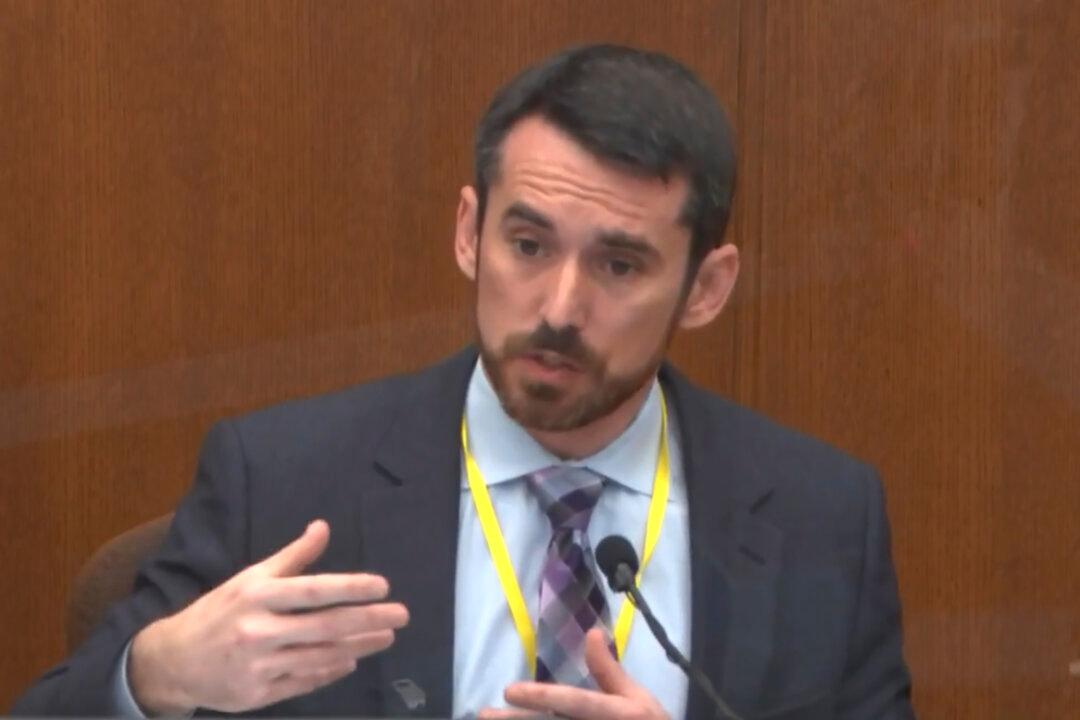Then-Minneapolis police officer Derek Chauvin used an unreasonable amount of force on George Floyd, who was accused of using counterfeit money and then resisted arrest, an expert told jurors in Chauvin’s trial on April 12.
“Both the knee across Mr. Floyd’s neck and the prone restraint were unreasonable, excessive, and contrary to generally accepted police practices,” Seth Stoughton, an associate professor at the University of South Carolina School of Law who was paid to testify by the prosecution, said in Hennepin County’s courthouse.





